March Reflections
Gerald
on
March 2, 2025
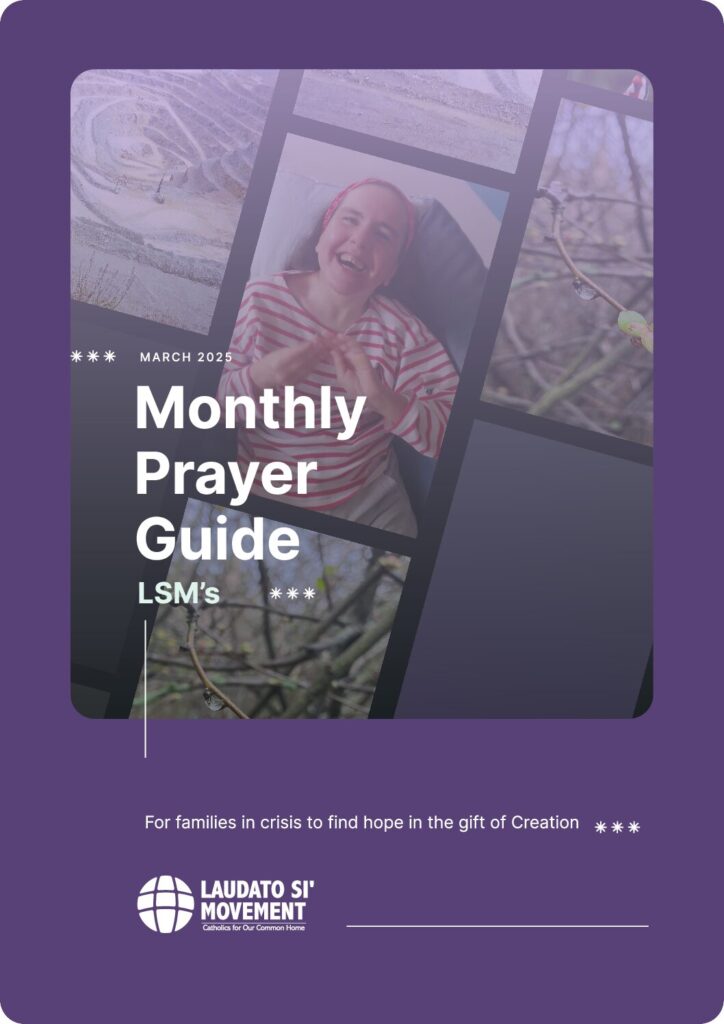
March reflections
Gerald
on
March 1, 2025
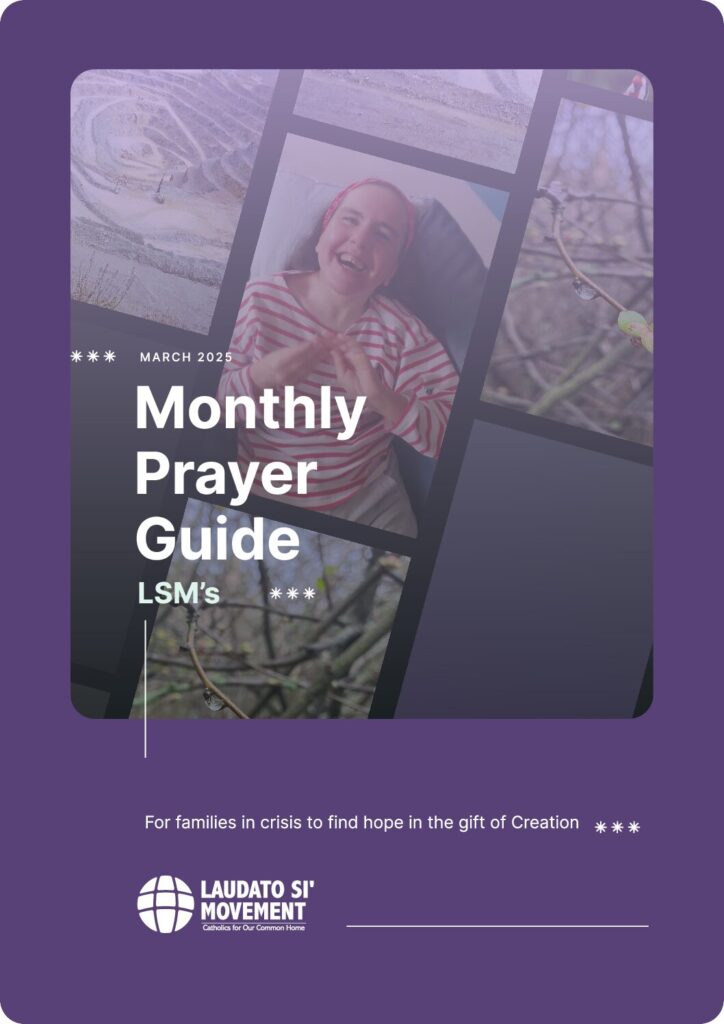
A SYNODAL CHURCH IN MISSION
Glenn Ryan
on
January 23, 2024
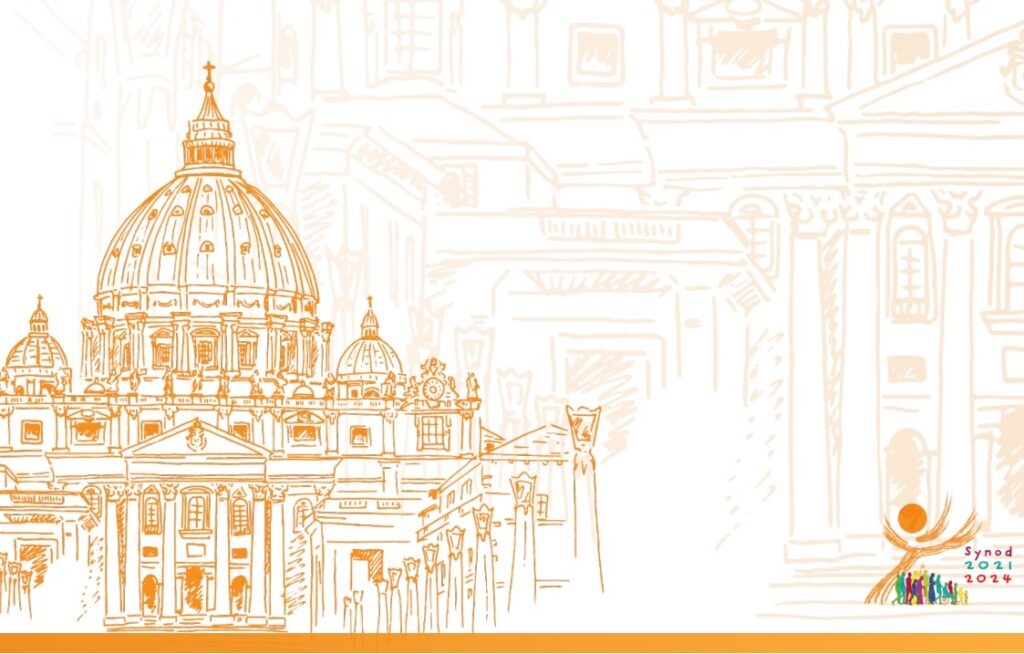
Synthesis Report of the 16th Ordinary General Assembly of the Synod of Bishops
In the late afternoon of Saturday 28 October 2023, the members of the XVI Ordinary General Assembly of the Synod of Bishops adopted the following Synthesis Report :
https://www.synod.va/en/news/a-synodal-church-in-mission.html
Letter of the XVI Ordinary General Assembly of the Synod of Bishops to the People of God
Glenn Ryan
on
January 23, 2024

Dear sisters, dear brothers,
As the proceedings of the first session of the 16th Ordinary General Assembly of the Synod of Bishops draw to a close, we want to thank God with all of you for the beautiful and enriching experience we have lived. We lived this blessed time in profound communion with all of you. We were supported by your prayers, bearing with you your expectations, your questions, as well as your fears. As Pope Francis requested two years ago, a long process of listening and discernment was initiated, open to all the People of God, no one being excluded, to “journey together” under the guidance of the Holy Spirit, missionary disciples engaged in the following of Jesus Christ.
The session in which we have been gathered in Rome since 30 September is an important phase of this process. In many ways it has been an unprecedented experience. For the first time, at Pope Francis’ invitation, men and women have been invited, in virtue of their baptism, to sit at the same table to take part, not only in the discussions, but also in the voting process of this Assembly of the Synod of Bishops. Together, in the complementarity of our vocations, our charisms and our ministries, we have listened intensely to the Word of God and the experience of others. Using the conversation in the Spirit method, we have humbly shared the wealth and poverty of our communities from every continent, seeking to discern what the Holy Spirit wants to say to the Church today. We have thus also experienced the importance of fostering mutual exchanges between the Latin tradition and the traditions of Eastern Christianity. The participation of fraternal delegates from other Churches and Ecclesial Communities deeply enriched our discussions.
Our assembly took place in the context of a world in crisis, whose wounds and scandalous inequalities resonated painfully in our hearts, infusing our work with a particular gravity, especially since some of us come from countries where war rages. We prayed for the victims of deadly violence, without forgetting all those who have been forced by misery and corruption to take the dangerous road of migration. We assured our solidarity and commitment alongside the women and men all over the world who are working to build justice and peace.
At the invitation of the Holy Father, we made significant room for silence to foster mutual listening and a desire for communion in the Spirit among us. During the opening ecumenical vigil, we experienced how the thirst for unity increases in the silent contemplation of the crucified Christ. In fact, the cross is the only cathedra of the One who, having given himself for the salvation of the world, entrusted His disciples to His Father, so that “they may all be one” (John 17:21). Firmly united in the hope brought by His Resurrection, we entrusted to Him our common home where the cries of the earth and the poor are becoming increasingly urgent: “Laudate Deum!” (“Praise God!”), as Pope Francis reminded us at the beginning of our work.
Day by day, we felt the pressing call to pastoral and missionary conversion. For the Church’s vocation is to proclaim the Gospel not by focusing on itself, but by placing itself at the service of the infinite love with which God loved the world (cf. John 3:16). When homeless people near St. Peter’s Square were asked about their expectations regarding the Church on the occasion of this synod, they replied: “Love!”. This love must always remain the ardent heart of the Church, a Trinitarian and Eucharistic love, as the Pope recalled on October 15, midway through our assembly, invoking the message of Saint Thérèse of the Child Jesus. It is “trust” that gives us the audacity and inner freedom that we experienced, not hesitating to freely and humbly express our convergences, differences, desires and questions.
And now? We hope that the months leading to the second session in October 2024 will allow everyone to concretely participate in the dynamism of missionary communion indicated by the word “synod”. This is not about ideology, but about an experience rooted in the apostolic tradition. As the Pope reminded us at the beginning of this process, “communion and mission can risk remaining somewhat abstract, unless we cultivate an ecclesial praxis that expresses the concreteness of synodality (…) encouraging real involvement on the part of each and all” (October 9, 2021). There are multiple challenges and numerous questions: the synthesis report of the first session will specify the points of agreement we have reached, highlight the open questions, and indicate how our work will proceed.
To progress in its discernment, the Church absolutely needs to listen to everyone, starting with the poorest. This requires a path of conversion on its part, which is also a path of praise: “I thank you, Father, Lord of heaven and earth, that you have hidden these things from the wise and understanding and revealed them to little children” (Luke 10:21)! It means listening to those who have been denied the right to speak in society or who feel excluded, even by the Church; listening to people who are victims of racism in all its forms – in particular in some regions to indigenous peoples whose cultures have been scorned. Above all, the Church of our time has the duty to listen, in a spirit of conversion, to those who have been victims of abuse committed by members of the ecclesial body, and to commit herself concretely and structurally to ensuring that this does not happen again.
The Church also needs to listen to the laity, women and men, all called to holiness by virtue of their baptismal vocation: to the testimony of catechists, who in many situations are the first proclaimers of the Gospel; to the simplicity and vivacity of children, the enthusiasm of youth, to their questions, and their pleas; to the dreams, the wisdom and the memory of elderly people. The Church needs to listen to families, to their educational concerns, to the Christian witness they offer in today’s world. She needs to welcome the voice of those who want to be involved in lay ministries and to participate in discernment and decision-making structures.
To progress further in synodal discernment, the Church particularly needs to gather even more the words and experience of the ordained ministers: priests, the primary collaborators of the bishops, whose sacramental ministry is indispensable for the life of the whole body; deacons, who, through their ministry, signify the care of the entire Church for the most vulnerable. She also needs to let herself be questioned by the prophetic voice of consecrated life, the watchful sentinel of the Spirit’s call. She also needs to be attentive to all those who do not share her faith but are seeking the truth, and in whom the Spirit, who “offers everyone the possibility of being associated with this paschal mystery” (Gaudium et Spes 22, 5), is also present and operative.
“The world in which we live, and which we are called to love and serve, even with its contradictions, demands that the Church strengthen cooperation in all areas of her mission. It is precisely this path of synodality which God expects of the Church of the third millennium” (Pope Francis, October 17, 2015). We do not need to be afraid to respond to this call. Mary, the first on the journey, accompanies our pilgrimage. In joy and in sorrow, she shows us her Son and invites us to trust. And He, Jesus, is our only hope!
Vatican City, October 25, 2023
Christmas 2023
Glenn Ryan
on
December 29, 2023

Dear Friend,
Approaching the end of 2023 may we reflect on those values of love
togetherness and the opportunity for our families to strengthen our ties.
It is also a time to reflect and pray for those who are less privileged than us.
Children living in war-torn areas face numerous challenges and hardships. In
2022, it was estimated that 468 million children worldwide lived in areas
affected by armed conflict. Nearly 200 million children were living in the
world’s most lethal war zones, the highest number in over a decade.
These children live in constant fear, experiencing grave violations of their
rights, which can have serious impacts on their mental health. Many of these
children are already at risk due to climate change and face unprecedented levels
of hunger.
Christmas has become a time of the year that is strongly associated with ‘home’,
a time when most of us want to be at home with family or loved ones. However,
when we look back to the first Christmas, we see that instead of staying at home
for the birth of Jesus, Mary and Joseph had to travel to Bethlehem because of
the census. The messy reality of childbirth in a stable is quite different to the
cozy images we associate with Christmas today: a crackling fire, stockings on
the mantelpiece, and presents under a Christmas tree.
This year as we prepare for Christmas, we remember those who do not have
homes, especially those with whom we work. In Makululu, Zambia, Salesians
are supporting vulnerable children who are left to live on the streets, and they
work to reintegrate them with their families where possible. In Sudan and the
Democratic Republic of Congo (DRC), conflict has displaced many thousands
of families.
In Ukraine families have been displaced with over 100,000 people, this
Christmas located all over Ireland. In Gaza the United Nations have stated over
1 million young people and their families have been displaced. Let us not forget
our brothers and sisters in Ukraine who have suffered in recent years.
The task ahead is enormous.
We can make a positive contribution.
May we, through prayer, use our preparation for the Holy Year to be inspired in
this season of Hope to make a difference in young lives.
Our Saviour is reason to hope; we are assured in a most overwhelming way that
God always keeps his promises; for on that first Christmas, He sent his only Son
Jesus, the long-awaited fulfilment of God’s promise of salvation. Jesus was not
born into comfort and security. He chose by becoming one of us to share in our
trials and tribulations.
May we challenge ourselves to make a difference this Christmas Season.
Seamus Mc Donald KSG
President Unum Omnes
Christmas Message 2023
unumomnesdev
on
December 29, 2023

Dear all!
The Christmas days are full of longing: festive atmosphere, peaceful times,
happy encounters, solemn church services and harmonious festive events.
Some things come true – many things will disappoint, scare and frighten us at
Christmas. – Christmas occurs in the face of constraints, worries,
disappointments, threats! Can we celebrate Christmas with a clear conscience?
Shouldn't we skip it? – No! All of this already occurs in the Christmas story
surrounding the birth of Jesus!
Constraints – Joseph and Mary are forced to register, according to imperial
regulations.
Worries – Traveling during pregnancy and the impending birth are worrying.
Disappointments – There is no room in the hostel in the home town of
Bethlehem. All they have left for the birth of Jesus is shelter in a stable.
Threats – Baby Jesus’ life is ultimately in danger. For King Herod, this young
creature has no dignity – he wants it killed. Joseph and Mary, along with the
infant Jesus, become refugees due to this threat.
God becomes human under these difficult circumstances. Nevertheless, no wrath
of God, no revenge, no reproaches, but the birth message of the angels is: Glory
to God in the highest and peace to those on earth who are of good will.
God is not neutral, but rather takes the side of the disadvantaged. Jesus Christ,
Son of God, proclaims and lives this love of God, this peace between God and
us humans.
This is not a ready-made peace package, but rather a growing peace: between
man and man, between man and creation, between man and his Creator God.
Peace is not about unity, but about harmony. And this does not arise from
monotony, but rather from the harmony of different tones by acknowledging
each other’s differences. Recognize and preserve the dignity of everyone –
really every human being.
Don’t give up despite slow growth – strengthen resilience:
Resilient people don't bury their heads in the sand.
Resilience is the ability to thrive even when things are difficult.
(Prof.DDDr. Clemens Sedmak)
Looking at the plight and emergency situation of so many fellow human beings,
do not turn away and assume three obligations from it:
(St. Pope Paul VI): Duty of solidarity + Duty of social justice + Duty of love for
all.
This presence of God, in the Son of God Jesus and his living spirit, is a real
reason to celebrate – the Christmas days with many traditional traditions in our
families and our culture. May the peace of the Son of God Jesus Christ fill your
hearts and accompany you into the new calendar year 2024.
Pax et bonum!
Andreas Maria Jakober,
Parish Priest and Ecclesiastical Assistant for UNUM OMNES
Austria, St. Johann im Pongau
Christmas Messages from our Ecclesiastical Assistant and President
Glenn Ryan
on
November 5, 2023
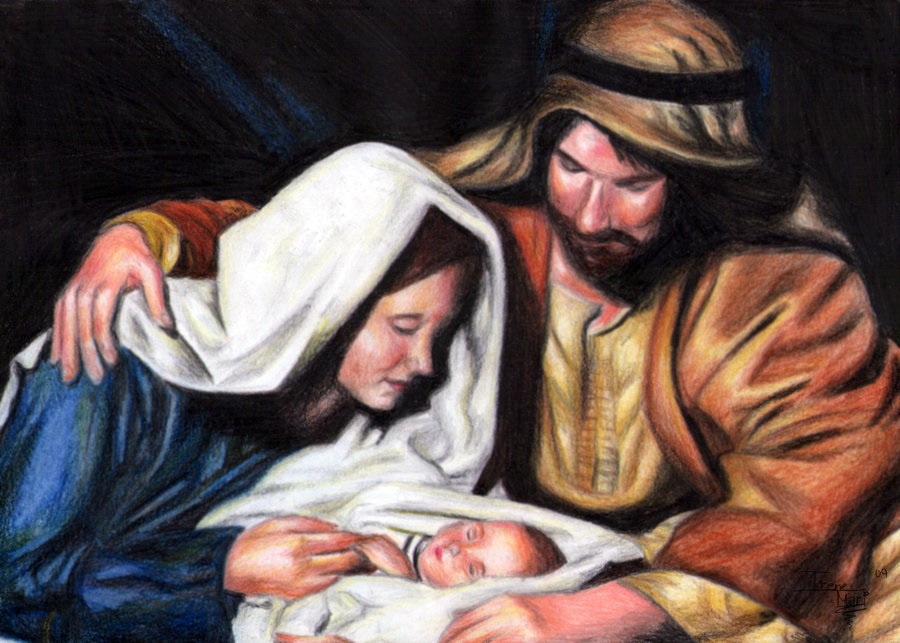
Christmas Messages from our Ecclesiastical Assistant and President
Click Christmas 2020
Most Rev. Archbishop Palmer- Buckle’s address to Unum Omnes
Glenn Ryan
on
November 4, 2023
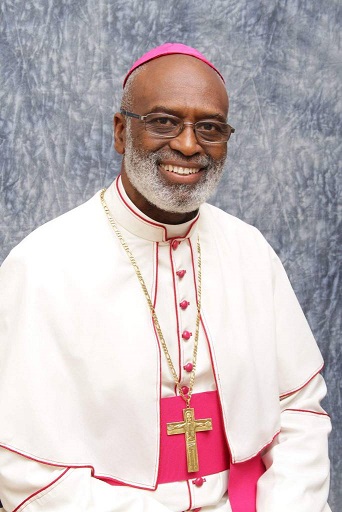
Most Rev. Archbishop Palmer- Buckle’s address to Unum Omnes during a recent webinar
Catholic Men’s Duty to the Poor and Fratelli Tutti 2020
Executive Committee which was to be held in L’viv Ukraine was held virtually 27th October
The opening address by the President
Glenn Ryan
on
November 3, 2023
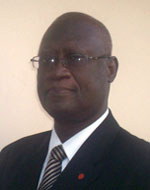
The opening address by the President
